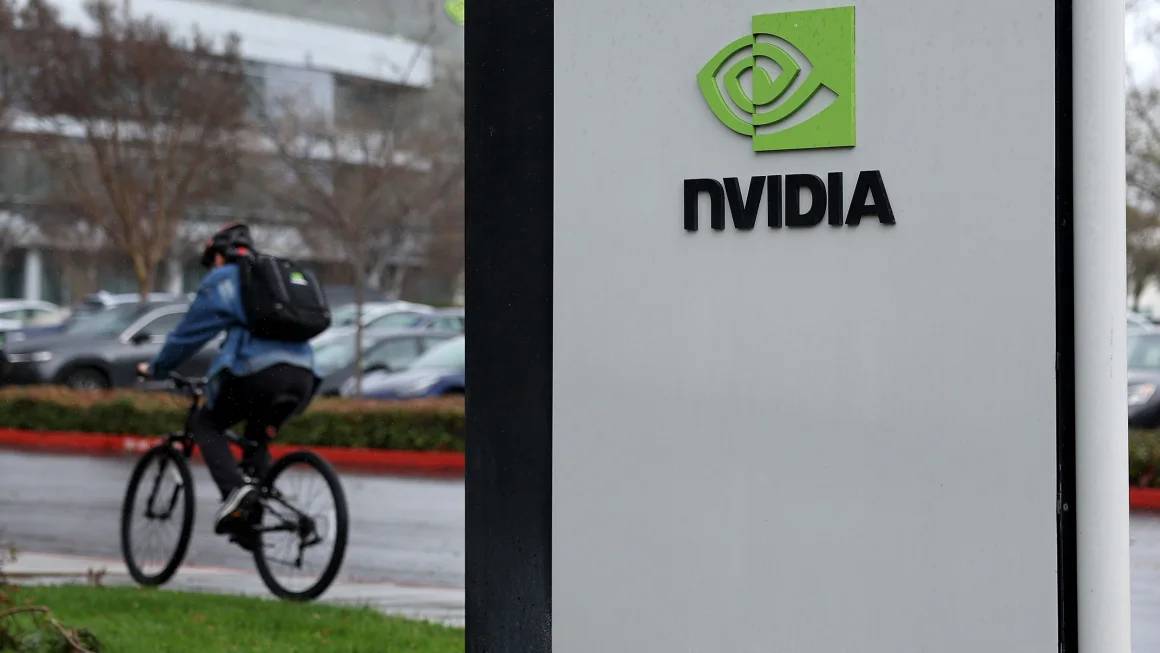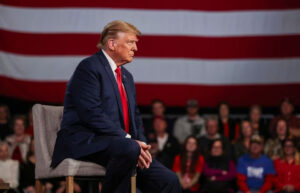As Wall Street braces for Nvidia’s fourth-quarter earnings report of 2023, the question of whether Nvidia is “too big to fail” looms large in the minds of investors and industry watchers. The California-based chipmaker, now the third largest company on Wall Street behind tech giants Microsoft and Apple, has been at the forefront of the artificial intelligence boom, dominating nearly the entire AI chipmaking market in the United States. Expectations are sky-high, with a staggering market cap of $1.7 trillion and a year-to-date return of about 40%, the highest in the S&P 500.
Investors anticipate Nvidia will announce earnings of $4.59 a share and $20.378 billion in revenue, a significant leap from $6.05 billion a year prior. Daniel Newman, CEO of The Futurum Group, a tech advisory and research firm, encapsulated the sentiment by saying, “There’s a very realistic and probable chance they beat expectations but zero percent chance they meet the sentiment of those expectations.” This reflects the outsized hype surrounding Nvidia and the pressure it faces to sustain its meteoric growth trajectory.
However, concerns about the sustainability of this growth are mounting. Shares of Nvidia have quintupled since the end of 2022, driven by the AI revolution, raising doubts about the continuation of such stratospheric growth rates. Newman pointed out, “It’s the law of large numbers. If you keep posting these solid quarters, they look smaller.” Despite emerging competition, Nvidia’s position as the “most sophisticated and deployed” chipmaker, crucial to national security and the economic future, remains unchallenged.
The broader implications of Nvidia’s growth and dominance extend beyond financial markets, influencing retirement savings, national security, and the strategic direction of AI development. Nvidia CEO Jensen Huang’s suggestion about sovereign AI infrastructure at the World Government Summit in Dubai underscores the critical role of state involvement in AI technology for national security and economic prosperity.
As Nvidia approaches its “big day,” the industry is enthusiastic about announcements from Intel and OpenAI founder Sam Altman’s chip-making venture. Meanwhile, significant movements in other sectors, such as Capital One’s acquisition of Discover Financial Services, aiming to become America’s largest credit card company, and Amazon replacing Walgreens in the Dow Jones Industrial Average, highlight the dynamic and evolving nature of the American economy.
Nvidia stands at a crossroads where its ability to sustain eye-watering growth rates is scrutinized. As Newman succinctly says, “Nvidia is robust and will continue to grow. But it must continue at an eye-watering rate, or investors will start looking at other plays.” The forthcoming earnings report will not only shed light on Nvidia’s current standing but also set the tone for its future trajectory in an increasingly competitive and rapidly changing technological landscape.




















